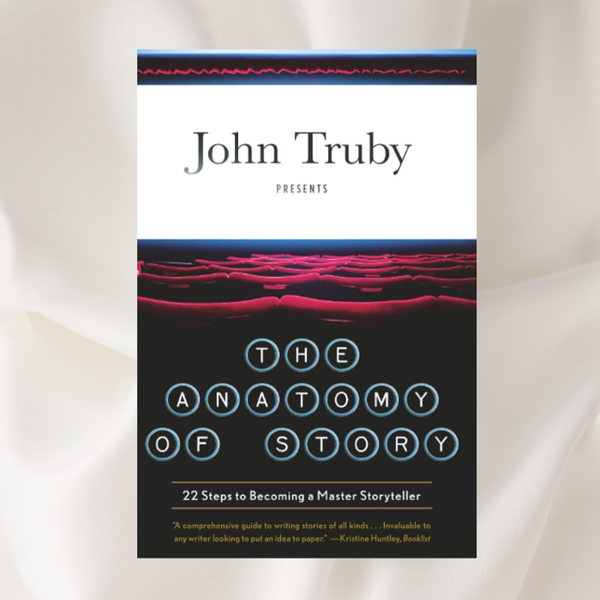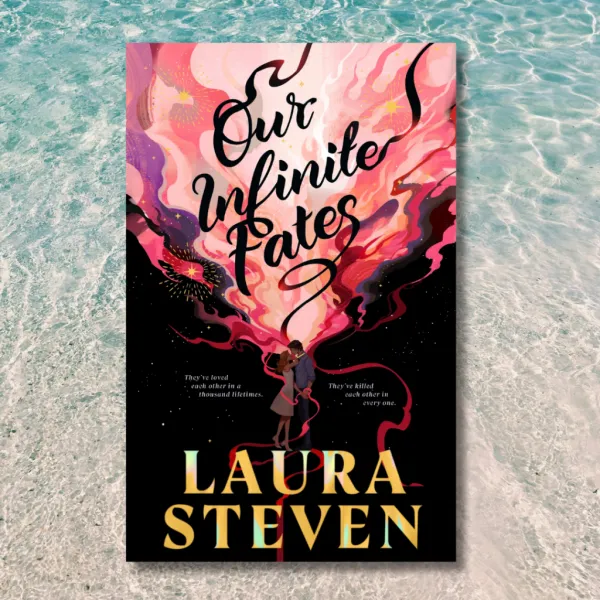How to Write a Novel Premise: Crafting Your Story's Core Idea
Let's have a look at how to write a compelling premise for your novel.

Every story starts with a spark of an idea, but a premise is the distilled core idea that makes people's ears prick up and listen. In plain terms, a premise is a one-sentence (or very short) summary of your story's what, who, and why. It's your novel's selling pitch.
Why does that matter? A killer premise sets the foundation of your plot, characters, and theme - this is what sells your book. Knowing your premise shows you understand the core idea of your book and can act as your go-to book description that you can use to interest potential readers and agents alike. A great premise can grab readers and agents from the get-go, while a weak one can make your story feel unfocused or forgettable.
Blending advice from the ever-popular Save the Cat! Writes a Novel by Jessica Brody, and my favourite, John Truby's The Anatomy of Story, we'll break down what makes a premise pop. 🎉
We'll cover the key elements, step-by-step crafting tips, and give some novel premise examples in fantasy, romance, and thriller. You'll be writing a pitch-perfect premise in no time!
📖 What Is a Novel Premise - and Why It Matters
A novel premise is the central idea or concept of your story - a snapshot of who it's about, what happens, and why it matters. In Save the Cat terms, it's like a high-level logline or hook that sums up the core 'story problem'. John Truby likewise states that the premise 'is your story stated in one line' - essentially your entire plot and character goal boiled down.
Truby uses classic one-liner examples:
- The Godfather
The youngest son of a Mafia family takes revenge on his father's killer and becomes the new Godfather. - Star Wars
When a princess is kidnapped by an evil empire, a young farm boy uses his warrior skills to rescue her and save the galaxy.
Why nail your premise? Because everything hinges on it. If your premise is weak, no amount of snazzy dialogue or cool characters will save your story - plot and theme will fall apart. In contrast, a strong premise keeps you on track while writing and makes readers care. It spells out your protagonist's goal, the central conflict blocking that goal, and what's at stake if they fail. A good premise sets the tone and direction for the plot, characters, and themes.
Think of your premise as your story's DNA. It guides every choice you make and helps grab attention in one quick sentence.
📖 Key Elements of a Strong Premise
Well, what does a premise contain? Both Brody and Truby emphasise similar ingredients. These are the pillars of a compelling premise:
- Protagonist & Goal: Who's your hero and what do they want? Save the Cat stresses a relatable main character whose goal we understand. Truby agrees - he calls this the character's desire (what the hero wants) and often pairs it with their inner weakness (the flaw they must overcome).
Example: A timid librarian discovers she has magic powers (hero) and vows to stop a dark wizard (goal).
We feel for the librarian because we know her desire and have a sense of her journey. - Conflict (Antagonist): What obstacle stands in the way? Both Brody and Truby insist on a tough, punishing problem. Save the Cat dubs this a punishing central conflict - crank up the difficulty so the hero is under siege and can't ignore it. Truby similarly urges a clear opponent or opposing force. This could be a villain, nature, society, or even the hero's own fear. Take your pick - but make it powerful enough to create tension.
- High Stakes: What's at risk? Save the Cat's formula says stakes must feel life-altering. Whether that is to 'save the world' or 'get out alive', failure should carry huge consequences. Truby echoes this, the premise should promise that something really big hangs in the balance (often life/death or the hero's deepest need). Stakes answer the question readers and agents alike have - 'why care?' Without them, the premise is just an idea.
- Originality & Believability: The premise must be fresh and plausible. The story idea should feel new or twist a familiar setup in an intriguing way. But it also must be believable to buy into the premise. Nothing kills a premise faster than 'I don't buy into that' reactions. Even in fantasy, the rules of the world must feel internally consistent. Truby often calls this the designing principle.
- Theme / Moral Question: Why does the story matter? Truby digs deep into the idea that every premise contains an underlying moral argument - a big question of good vs. evil or 'how should people act?'. He encourages us writers to spot the story's message right at the premise. Save the Cat similarly notes that the theme (the lesson or value question) should emerge naturally from the premise. In practice, this means your premise should hint at the deeper journey.
Example: A corrupt cop vows to bust a criminal empire (plot), but to do so he must wrestle with his own conscience (moral choice).
The theme (redemption vs. corruption) is baked into the premise.
Each of these pieces of the puzzle works together. The four pillars of a solid story are a protagonist with a goal, conflict with high stakes, a unique concept and a theme with heart. Notice how those line up? When you combine a compelling hero and goal, a punishing obstacle, life-or-death stakes, and a hint of a moral, you've got a recipe for a standout premise.
📖 Step-by-Step: Crafting Your Premise
Alright, let's turn theory into action and whip up your own novel premise!
- Start with the basics: Identify our main character and what they want. What's their goal or desire, and why? (If you already have a cool scene or picture in your head that can spark it - just ask who's in it and what they're after.) You can make use of Truby's advice and start by writing just one line that captures your story. This line should mention the protagonist and their central goal.
- Define the conflict: Next, figure out what stands in the way. Who or what opposes the hero? Make sure the problem is tough enough. Write it into your premise sentence (or right after).
Example: When [inciting incident], [protagonist] must [action] to [goal], but [antagonist/obstacle] threatens [stakes].
Being precise with the premise now will help spot inherent problems in the story right at the premise line. This means that if your sentence feels vague, refine it until it pinpoints the conflict clearly. - Set the Stakes: Make it clear what happens if they fail. Add the consequences! Life or death? Justice or ruin? Then and only then will readers feel urgency. If you remember, Save the Cat says the stakes should be life-altering. Try adding a phrase like '...or else the kingdom will fall,' or '...or he'll be lost forever.' This can be in your premise line or a short follow-up. If you're inspired, bold it out in the same sentence: 'Must [goal] before [stakes].'
- Highlight originality & hooks: Does your premise have a fresh new angle? This could be a kicker to make it stand out. For instance, Truby suggests teasing out your unique designing principle from the premise (something intriguing that the premise promises). Ask yourself: Is there a surprising twist or concept here?
Example: A teen discovers he can step into the pages of books, or A mummy wakes up in modern-day London.
Whatever it is, make sure it's in the premise or immediately implied. Also, double check it's believable: if it's fantasy, are the rules clear enough? If it's a thriller, is it realistic enough? - Incorporate the theme/moral: Think about the bigger question or lesson lurking in your premise. Truby recommends identifying the theme early on, often expressed by a moral choice the hero will face. You don't have to explicitly state the theme in the premise line, but hint at it. So if your story is about sacrifice, your premise might note that your hero must give up something valuable. This alignment means that your premise isn't just a hook - it actually captures the why of the story.
- Write and refine your one-sentence pitch: Using the above, draft a crisp sentence. It should read like a movie logline:
When [something happens], [hero] must [goal], but [obstacle] threatens [stakes].
If that feels forced, you can do a short paragraph version, but the essence should fit in one line. Then test it. Try saying it out loud. Is it catchy? Do you want to know more? Are you at the edge of your seat? Write the premise and then tweak it until it sparks. - Brainstorm "What if...": Once you have the basic premise line, it's time to expand. Ask yourself, "What if [we tweak this element]?" or "What if the obstacle were this instead?" This can reveal a stronger twist or larger scope. Write a few variations of your premise line by changing the antagonist or stakes. This will help you spot any weak spots or exciting new angles. (This is the fun 'play with your idea' phase - let your imagination go wild).
Step 1 takeaway: Get that one-line premise down! It'll guide everything else.
Step 2 takeaway: Play around with it. Test your premise's possibilities. A little "what if?" can spark big changes.
Repeat refining these steps until your premise is sharp. Everything else depends on the premise. So take your time polishing it now, rather than rewriting later!
📖 Novel Premise Examples
If you're anything like me, you need to see some examples for things to actually click. Here are three premise ideas for the three genres of fantasy, romance, and thriller. Each is one sentence that names the hero, conflict, and stakes:
- Fantasy: A young village healer discovers an ancient dragon's soul inside herself, and must master its power to defeat a plague of darkness that threatens her world.
(Hero + magical legacy, dark lord vs. healing the land.) - Romance: A cynical divorce lawyer in New York impulsively returns to her small hometown for her sister's wedding, only to bump into her childhood sweetheart and wrestle with old feelings while juggling a big professional trial.
(Hero vs. letting love back in, stakes: love or career.) - Thriller: A resourceful investigative journalist uncovers evidence that her fiancé is an undercover spy planning a high-profile assassination, and must race against time to stop the attack - even if it means destroying the man she loves.
(Hero vs. betrayal, stakes: life/death or thousands + her heart.)
Notice each example names the who/what, hints at the conflict, and suggests the stakes. They're premises - not full plots, but enough to get the idea across and make you want to read more!
Use these examples as a template: pick a vivid hero and goal, add a clear obstacle, and top it all off with a consequence if they fail. Then voilà - you’ve got a story hook.
📖 Your Turn! Write and Refine Your Premise
Armed with these tips, it's time to try it yourself. Grab a notebook and write a one-line premise for your story or any idea you have. Incorporate character, conflict, and stakes just like above. Remember to boldly capture the essence of your novel in that line.
Don't stress if it's rough at first - the key is to keep tweaking. See where your idea can go. Brainstorm variations, hone in on what makes your premise special. And don't forget the moral of the story - even a quick hint of the theme can elevate your premise from good to great.
Get your premise right up front. As Truby puts it, 'the premise is your story stated in one line. Everything else depends on it.' Make the sentence shine, and you've set the stage for an amazing novel.
Ready to write? Give it a shot now. Create your premise line, share it with a writing friend, or bookmark this post as you develop it. Your best story idea might be just one powerful premise away!
Liked this guide? Check out the ever-popular Save the Cat! Writes a Novel by Jessica Brody, based on Blake Snyder's beat sheet, and my favourite John Truby's The Anatomy of Story for deeper dives.
Are you still brainstorming your novel and haven't quite got to the premise line yet? Check out my post on How I'm Brainstorming My Novel for some tips!
Still working on your characters? Check out my 10 Fun Character Writing Exercises to Flesh Out Your Cast or Creating Character Personalities: A Guide to Traits, Flaws, and Motivations.
Stay tuned for my next post, where I share a story update with a brand spanking new premise that I forged with you in this post!
✍️ Hop to it and keep writing! 🐸 - Krystal




